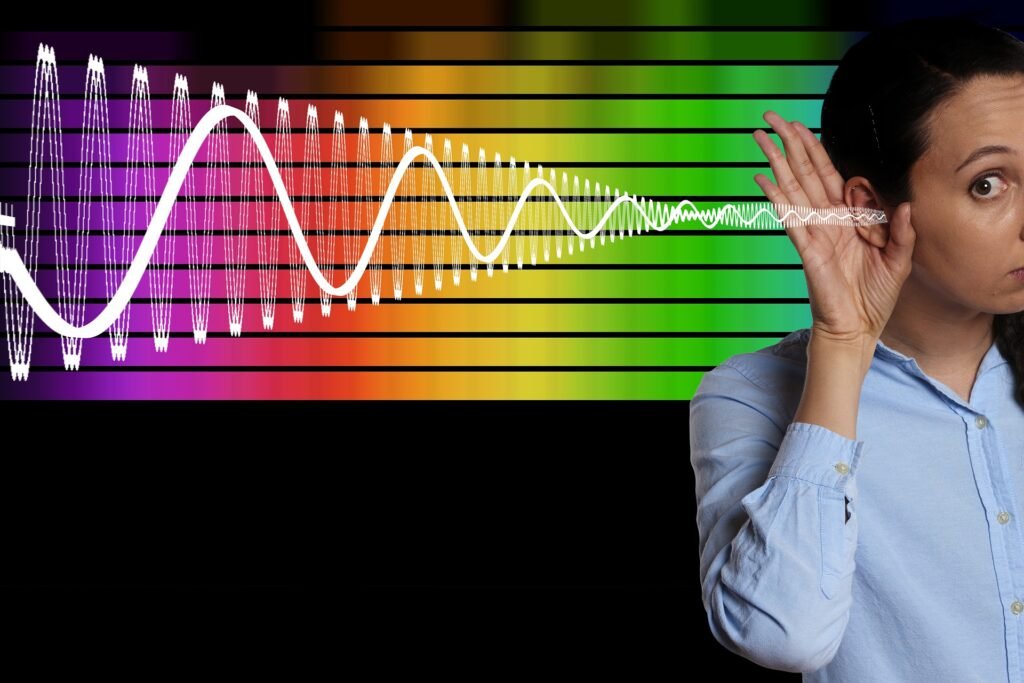Tinnitus and Music Therapy- How Can It Help?
Tinnitus is a condition characterized by ringing or buzzing in the ears. Learn about its causes, how music therapy can help, and the best ways to manage this condition effectively.
What is Tinnitus?
Tinnitus is the perception of sound when no external sound is present. People often describe it as a ringing, buzzing, hissing, or whistling in the ears. These noises can be intermittent or continuous, and they can vary in volume. Tinnitus is not a disease in itself but rather a symptom of an underlying condition.
Tinnitus affects millions of people worldwide. For some, it is a minor annoyance, while for others, it can significantly impact their quality of life. It’s essential to understand that tinnitus can occur in one or both ears and may affect people of all ages, though it is more common in older adults.
What Causes Tinnitus?

Tinnitus can have various causes, ranging from hearing loss to more severe medical conditions. Understanding the root cause is vital for effective management and treatment. Here are some of the most common causes of tinnitus.
1. Hearing Loss
Hearing loss, particularly age-related hearing loss (presbycusis), is a leading cause of tinnitus. As we age, the tiny hair cells in our inner ear become damaged or die, leading to hearing impairment. This damage can also trigger tinnitus, as the brain attempts to compensate for the lost sound signals.
2. Exposure to Loud Noise
Prolonged exposure to loud noise, such as music concerts, industrial work environments, or even listening to music through headphones at high volumes, can damage the hair cells in the inner ear. Once these cells are damaged, they cannot regenerate, leading to hearing issues and tinnitus.
3. Ear Infections or Blockages
Ear infections or blockages caused by wax buildup, fluid, or a foreign object can lead to temporary tinnitus. Once the blockage or infection is treated, the tinnitus often resolves itself.
4. Medications
Certain medications, known as ototoxic drugs, can cause tinnitus as a side effect. These include nonsteroidal anti-inflammatory drugs (NSAIDs), some antibiotics, diuretics, and chemotherapy drugs. If you suspect that medication is causing your tinnitus, consult your doctor about possible alternatives.
5. Head or Neck Injuries
Injuries to the head or neck can disrupt the auditory system, leading to tinnitus. Such injuries may also affect blood flow to the ears or brain, contributing to the problem.
6. Meniere's Disease
Meniere’s disease is an inner ear disorder that can cause tinnitus, along with vertigo and hearing loss. The exact cause of Meniere’s disease is unknown, but it is believed to result from abnormal fluid buildup in the inner ear.
7. High Blood Pressure or Cardiovascular Issues
Tinnitus can sometimes be related to blood flow problems, especially when caused by high blood pressure or other cardiovascular conditions. The sound of your pulse may be noticeable in your ears (known as pulsatile tinnitus).
How Tinnitus Affects Daily Life
Tinnitus can vary in its severity and impact on a person’s life. Some people may only notice it in quiet environments, while others may find it so disruptive that it interferes with daily activities, work, and sleep. The constant noise can lead to irritability, difficulty concentrating, stress, and even depression in severe cases.
Tinnitus and Music Therapy: How Can It Help?
Tinnitus can be distressing, but there are ways to manage it, and one promising approach is music therapy. Music therapy is a non-invasive, soothing method that uses sound to help reduce the perception of tinnitus and its associated stress. Here’s how it works.
1. Sound Masking
Music therapy often incorporates sound masking, where music or calming sounds are played to cover up the tinnitus noise. This can help make the ringing or buzzing less noticeable. Listening to specific frequencies or relaxing music can provide temporary relief from the perception of tinnitus.
2. Neurological Benefits
Music has a profound effect on the brain. It can activate certain neural pathways and help in rewiring the brain’s auditory system. By listening to music or specially designed soundscapes, the brain can learn to shift its focus away from the tinnitus sound.
3. Stress Reduction
Tinnitus can be exacerbated by stress and anxiety. Music therapy promotes relaxation by lowering cortisol levels (the stress hormone) and encouraging a calm state of mind. Regular sessions of relaxing music can reduce the emotional distress associated with tinnitus.
4. Personalized Sound Therapy
Some music therapies are customized to the specific frequency of a person’s tinnitus. By creating a sound profile that matches the individual’s tinnitus frequency, the therapy can effectively train the brain to ignore the tinnitus noise.
5. Cognitive Behavioral Therapy (CBT) Integration
Music therapy can also be combined with cognitive behavioral therapy (CBT) for tinnitus management. CBT helps patients reframe their negative thoughts about tinnitus, and music therapy provides additional relief through calming sounds and relaxation techniques.
Other Treatment Options for Tinnitus
In addition to music therapy, there are several other treatments and strategies to manage tinnitus.
1. Hearing Aids
If tinnitus is linked to hearing loss, using hearing aids can help. By amplifying external sounds, hearing aids make tinnitus less noticeable. Many modern hearing aids also come with built-in sound masking features.
2. Tinnitus Retraining Therapy (TRT)
Lorem ipsum dolor sit amet, consectetur adipiscing elit. Ut elit tellus, luctus nec ullamcorper mattis, pulvinar dapibus leo.
3. Cognitive Behavioral Therapy (CBT)
CBT is a form of psychological therapy that helps people manage tinnitus by changing the way they think about and respond to the condition. It focuses on reducing anxiety and improving the emotional response to tinnitus.
4. Lifestyle Changes
Certain lifestyle changes can help alleviate tinnitus symptoms. Reducing exposure to loud noises, managing stress, and avoiding caffeine, nicotine, and alcohol can make a difference. Regular exercise and a healthy diet also contribute to overall well-being, which can lessen the impact of tinnitus.
1. What exactly is tinnitus?
Tinnitus is the perception of sound, such as ringing, buzzing, or hissing, in the ears without any external sound source.
2. Can tinnitus go away on its own?
In some cases, tinnitus may go away, especially if it is caused by temporary issues like ear infections or blockages. However, if it’s due to permanent damage, such as hearing loss, it may be a long-term condition.
3. Is tinnitus a sign of hearing loss?
Yes, tinnitus can be a symptom of hearing loss, particularly age-related or noise-induced hearing loss.
4. How does music therapy help with tinnitus?
Music therapy helps by masking the tinnitus sound, reducing stress, and retraining the brain to focus on other sounds. It can be an effective tool for managing the condition.
5. Can loud music cause tinnitus?
Yes, prolonged exposure to loud music can damage the inner ear and lead to tinnitus. It’s essential to protect your ears by using earplugs or keeping the volume at a safe level.
6. Is there a cure for tinnitus?
Currently, there is no cure for tinnitus. However, various treatments like music therapy, hearing aids, and CBT can help manage and reduce the impact of tinnitus on daily life.



